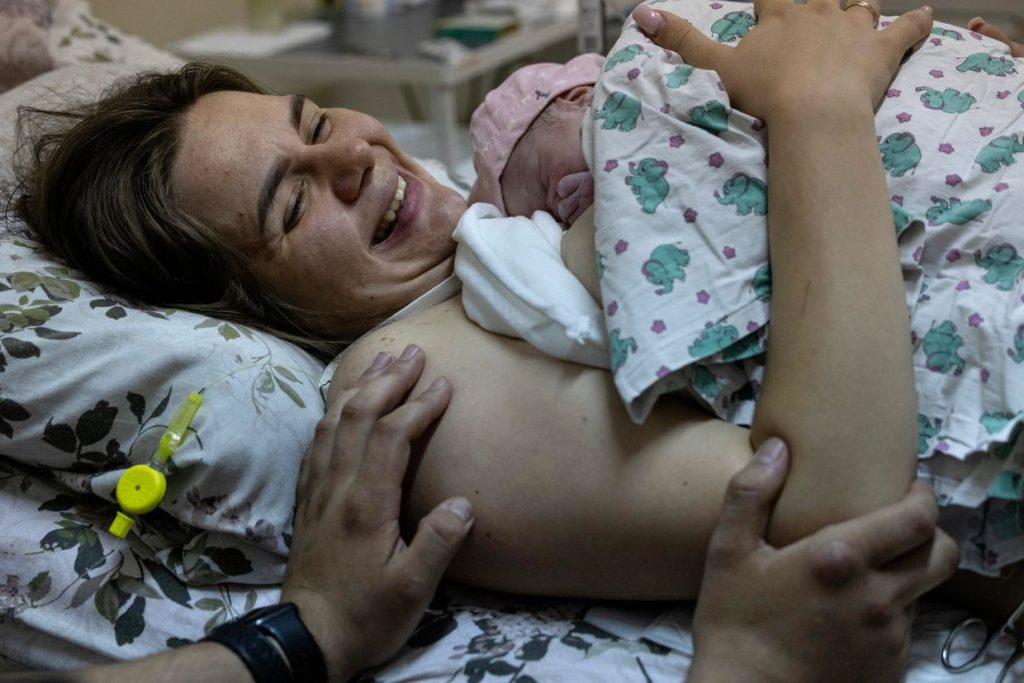The author shares her experience of having a child in western Ukraine amidst the ongoing conflict with Russia. Even though her region is relatively safe, with few attacks, the constant threat of war looms large. She reflects on the reality that her child will grow up in a world where war, air raid sirens, and the loss of innocence are common. She grapples with the difficult decisions of when and how to expose her child to the harsh realities of their surroundings. The brutality of the war is highlighted through statistics of children killed and abducted by Russia, painting a bleak picture of the future for Ukrainian families.
Despite the uncertainty and fear, the author remains hopeful and determined to provide a peaceful future for her child. She envisions a future where her child can be happy, healthy, and surrounded by a peaceful sky. However, the impact of war on everyday life in Ukraine is unavoidable, with changes in education, military service, and societal norms becoming the new normal. The generational divide between parents and children takes on a new meaning in a wartime setting, with sacrifices and resilience shaping the future of Ukrainian children.
The author contemplates the challenges and fears faced by parents in wartime Ukraine, from economic instability to the toll on mental health caused by daily Russian attacks. Despite the terrifying nature of having a child during wartime, the author emphasizes the worthiness of the experience. Family bonds, compassion, and hope become guiding forces in a world that is unforgiving and cruel. The decision to have a child in such circumstances becomes a testament to choosing love over fear and leaving behind a legacy of resilience and compassion in the face of adversity.
The future for Ukrainian children is uncertain due to Russia’s war, leading to a mix of thankfulness, worry, and mourning among parents. The constant threat of violence, economic downturns, and shifts in societal norms add layers of complexity to the already challenging experience of raising children in a wartime setting. Despite these challenges, the author finds solace in the belief that family bonds will navigate them through a harsh world, leaving behind a legacy of compassion and hope amidst the chaos of war. Ultimately, the decision to bring a child into the world during wartime becomes a deeply personal yet impactful choice for parents in Ukraine.
The author reflects on the ever-present fears and uncertainties that come with raising a child in a war-torn country. The weight of responsibility to protect their child from the horrors of war, while also preparing them for a turbulent future, is a constant struggle for parents. The author envisions a future where her child’s education will be shaped by the realities of warfare, with militarization and patriotism becoming integral parts of their upbringing. Despite the challenges and fears that come with having a child in wartime, the author finds strength in the choice to spread compassion and hope in the face of adversity, leaving a lasting legacy for future generations in Ukraine.
In conclusion, the author’s experience of having a child in western Ukraine during the ongoing conflict with Russia sheds light on the complexities and challenges faced by parents in wartime. The constant threat of war, the impact on daily life, and the uncertainties of the future weigh heavily on families, yet the resilience, compassion, and hope that guide them through such tumultuous times are highlighted. The decision to have a child in a war-torn country becomes a deeply personal and impactful choice, underscoring the human spirit’s ability to choose love over fear in the face of adversity.


